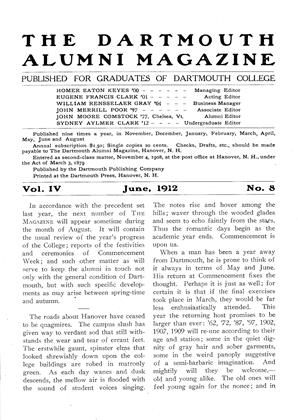Young (Professor of Mathematics at Dartmouth). Prepared for publication with the cooperation of W. W. Denton, with a "Note on the Growth of Algebraic Symbolism" by U. G. Mitchell. New York, The Macmillan Co., 1911. vii-f-247 pp.
This book is a very successful attempt to present in a popular way the fundamental points of view of the modern mathematician, as well as to explain many of those important notions usually accessible only to those who have had a long draining in the higher mathematics. The fact is emphasized that any mathematical discipline must have as its basis a set of unproved propositions or assumptions, and that such a discipline gains both in generality and clarity by a precise statement of those assumptions. Having made this point clear, the author proceeds to a discussion of the foundations of Algebra and Geometry. The discussion is from the standpoint of the skilled mathematician and logician and free use is made of the ideas of higher mathematics. However, the simple conversational style and the wealth of illustrative material place the subject matter of the book within the reach of the reader with no knowledge of mathematics beyond that of ordinary algebra and geometry. It is not possible to list here all the important subjects discussed in the book, but the discussion of "A Non Euclidian World," History of Parallel Postulate, Class, Correspondence, Group, Assumption of Hilbert and Pieri, n space, Independence of a Set of Postulates, Limit, etc., should be of general interest. This book will be of great value to the secondary school teacher who wishes to broaden his own ideas of mathematics, to the general reader who has long thought the realm of higher mathematics closed to one not technically trained therein, to the professional mathematician who can not fail to be delighted with the careful organization and simple presentation of this portion of the material of his field.
 View Full Issue
View Full Issue
More From This Issue
-
 Article
ArticleIn accordance with the precedent set last year,
June 1912 -
 Article
ArticleSPRING MEETING OF TRUSTEES
June 1912 -
 Class Notes
Class NotesLOCAL ASSOCIATIONS
June 1912 -
 Article
ArticleTHE DARTMOUTH COLLEGE GRANT
June 1912 By Philip W. Ayres -
 Article
ArticleDARTMOUTH SOCIAL SERVICE
June 1912 -
 Article
ArticleHOW THE HEALTH OF THE COLLEGE IS MAINTAINED
June 1912 By Howard Nelson Kings ford, D. M. C. '98








